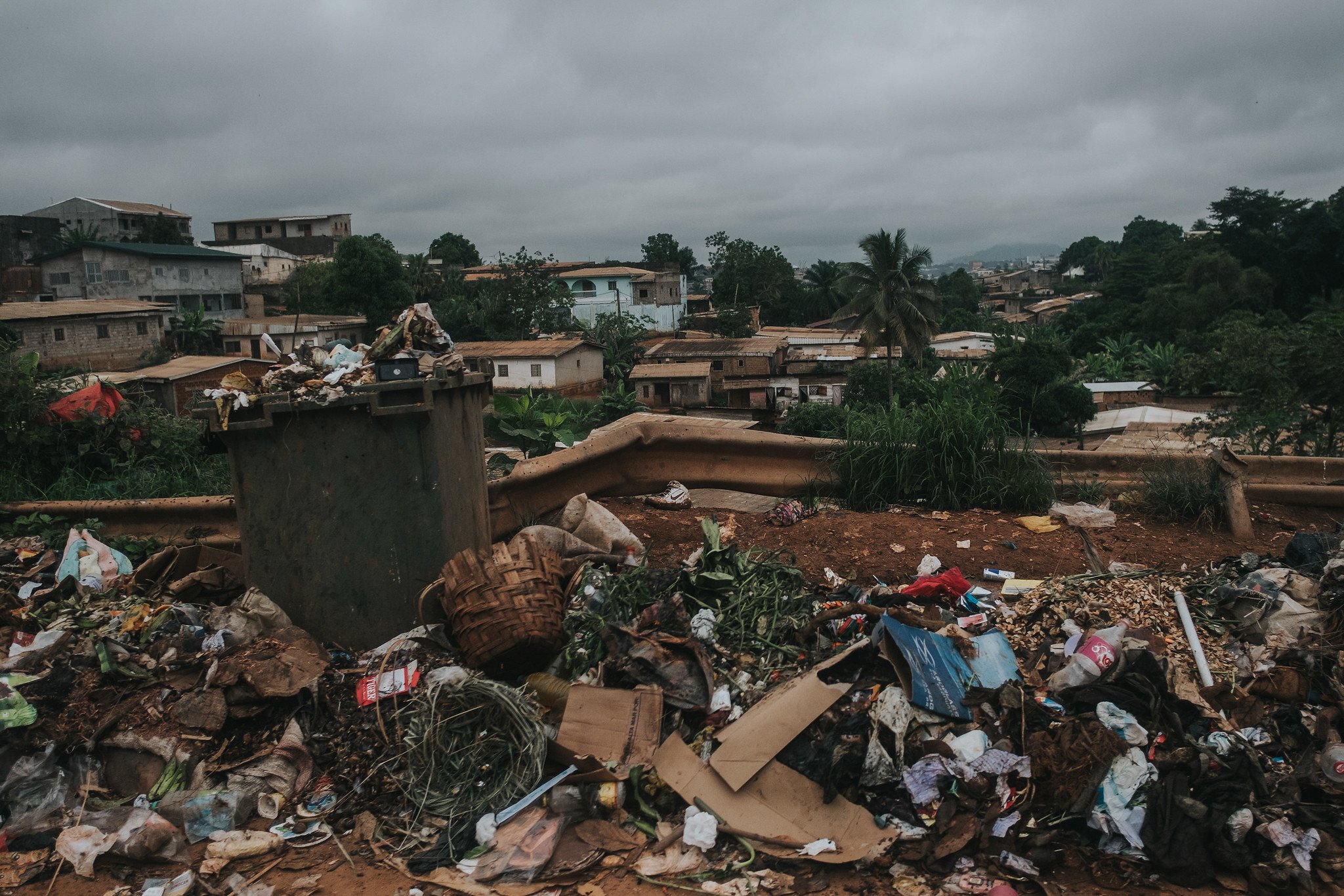Cameroon: Where One Man's Trash is Another Man's Treasure
A pile of discarded trash sits on the side of the road on the outskirts of Yaoundé, Cameroon. (Flickr)
The streets of Cameroon’s capital Yaoundé overflow with rubbish. The garbage spillage is so pervasive that it blocks traffic and floods rivers. Besides the apparent problems with pollution, public health is becoming a major concern as the trash goes for weeks or months on end without being collected. It is easy to chalk up this picture to the negative externalities of underdevelopment, but Cameroon, just like the United States and countless nations across the globe, has a proper trash collection system. However, the employees of the company in charge of waste management have been on strike for two weeks, and no one had stepped in to pick up the slack until Cameroonian start-up ISOTECH-Sarl decided to take the reins.
The Great Cameroonian Garbage Patch
On the coast of Cameroon lies the economic capital of Douala, a seaport that, just like Yaoundé, is teeming with garbage. Long-time resident of Douala David Mouamba remarks, “We can't move around because of the rubbish. We don't know what the government is waiting for because it's everywhere, not only here in Douala. How can we be organising the African Cup of Nations when Douala is so dirty?”
Countless Cameroonian citizens share his sentiments, but the gridlock between trash disposal companies and their workers continues to worsen. One worker spoke anonymously with Africanews, alleging, “We have been claiming three months of unpaid wages. For more than 10 years, we work two months and they only pay one. But this time they have gone too far. We have gone three months without pay; our children are not at school; we are frustrated; we have colleagues who are in prison.”
But not all hope is lost in Douala. A new company called ISOTECH-Sarl has launched efforts across the city to collect hundreds of tons of trash. While this is not revolutionary, what they do with the trash after is.
Breaking it Down
Where once discarded plastic blocked up sewage systems and drains, it is now being burned to turn it into diesel fuel. ISOTECH-Sarl workers canvas the streets of Douala, picking up trash before transporting it to a processing plant. Once there, the waste is pelleted and placed in a pyrolysis oven along with other materials for 30 to 40 minutes at nearly 600°C until a revocable liquid is made. The system produces 15 liters of fuel per day, which is enough to power the incinerator as well as sell the fuel to local businesses. According to their website, ISOTECH-Sarl aims “to bring added value to the sustainable development of the Cameroonian industrial sector and meet the needs of all environmentally conscious partner companies.”
Forward Looking Straggler
Despite their small operation, ISOTECH-Sarl has been recognized by the Cameroonian government, with Chief of Service and Toxic and Hazardous Waste for the Ministry of Environment William Lemnyuy arguing, “We are very close to the sea, and this means we will have less and less bottles that will go into the ocean and that will turn into micro plastics that are very often consumed by seedlings and fish and that further pollute the ocean.”
Cameroon is far from a green energy haven, ranking 139 out of 180 on the Environmental Performance Index 2020. Itt is worth noting that although ISOTECH is helping to keep the streets clean, burning plastic can generate harmful and sometimes toxic chemicals in the process — a practice that is largely frowned upon in the United States. Despite this, Cameroon is still helping to fight the age-old maxim that environmentalism is a rich man’s game. ISOTECH-Sarl presents the perfect example of an innovative solution to a long standing problem in a society where climate action is necessary for survival.

